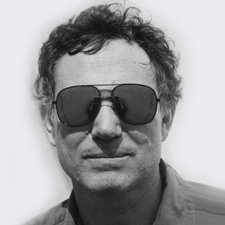Questions: Difference between revisions
m fix excess space in footnote section |
m time |
||
| Line 10: | Line 10: | ||
|label10 = Preceded by: | |label10 = Preceded by: | ||
|label11 = Followed by: | |label11 = Followed by: | ||
|data8 = | |data8 = 25 minutes | ||
|data4 = 4/22/[[1983]] | |data4 = 4/22/[[1983]] | ||
|title = [https://www.joefrank.com/shop/questions Questions][https://www.joefrank.com/streaming/shows/?jfsearch=Questions] | |title = [https://www.joefrank.com/shop/questions Questions][https://www.joefrank.com/streaming/shows/?jfsearch=Questions] | ||
| Line 92: | Line 92: | ||
[[Category:Show]] | [[Category:Show]] | ||
[[Category:Show_by_date|19830422]] {{Airdate|airdate=1983-04-22}} | [[Category:Show_by_date|19830422]] {{Airdate|airdate=1983-04-22}} | ||
{{Series|series=WBAI And NPR Playhouse}}{{Cast|cast=[[Tim Jerome]], [[Mark Hammer]], [[Arthur Miller]], [[Paul Mantell]], [[Eric Sears]], [[Irene Wagner]], Joe Frank}} | {{Series|series=WBAI And NPR Playhouse}} | ||
{{Cast|cast=[[Tim Jerome]], [[Mark Hammer]], [[Arthur Miller]], [[Paul Mantell]], [[Eric Sears]], [[Irene Wagner]], Joe Frank}} | |||
Revision as of 08:43, 18 March 2021
| Series | |
|---|---|
| WBAI And NPR Playhouse | |
| Original Broadcast Date | |
| 4/22/1983 | |
| Cast | |
| Tim Jerome, Mark Hammer, Arthur Miller, Paul Mantell, Eric Sears, Irene Wagner, Joe Frank | |
| Format | |
| 25 minutes | |
| Preceded by: | Pilot |
| Followed by: | Lies |
You experience yourself as a free agent.
Questions is a program Joe Frank produced as part of the series WBAI And NPR Playhouse. It was originally broadcast in 1983.
Synopsis
Joe wonders whether free will exists, cites the opinions of Determinists first, then Existentialists (Jean-Paul Sartre). Because we pursue love, we may behave inauthentically to obtain it.
6:10: A WBAI panel talks to callers.[1] A guy says there was a glut of computer programmers created in the '50s and '60s, then discusses computer crime. The caller paid for a course but instead of a job has an $1,800 debt. A second caller says we've misdiagnosed our problems.
9:30: Joe talks about the significance of the unconscious; a friend with a bum foot had it cured when his analyst attributed it to guilt over his father's death; then the analyst confessed to the murder and killed himself. Later, riding a train, he decides that he can choose different points of view.
12:10: A fellow with a Spanish accent (Tim Jerome?) talks about the abuses of the Arbenz (sp?)[2] regime of Gaboon (sp?). Others dispute the charges.
18:10: Joe says we fall in love with people who have qualities we lack, which qualities make us unhappy with them eventually.
19: Joe says Hegel wrote that our ideas are shaped by the time they are formed, which makes them invalid.
20:10: Joe, a cab driver out in the country, sees a VW destroyed by a collision with a tree, finds the driver, shocked but uninjured, trying to peel the registration sticker off, sees this as how we live: our lives are wreckage; we concentrate on insignificant details.
22: A guy tells Joe that what most people believe is untrue, says that there's no point in arguing. Then a woman says we're ignoring something terrifically basic.
- Is there free will?
- Determinism v/s existentialism.
- Did you choose your identity?
- Interview with government spokesman and torture victim
- Using Hegel to disprove Hegel
- The feeling of the earth moving beneath your feet
- Everyone is focusing on insignificant details (an epiphany received after encountering a crash victim peeling the inspection sticker off his ruined vehicle's windshield)
- Everything is true speech.
Music
- "Are You Going With Me?" - Pat Metheny Group (from Offramp, 1982) | YouTube
Commentary
Please see guidelines on commentary and share your personal thoughts in this section.
Footnotes
- ↑ sounds like the same stuff in Jewish Blues.
- ↑ Jacobo Árbenz was Guatemala's president 1951-4, deposed in a coup. I think they used the name unintentionally.
